Good for BUSINESS
As more openly gay business owners turn to franchising, they’re helping entrench an inclusive culture in the Canadian marketplace
By Matthew Bradford
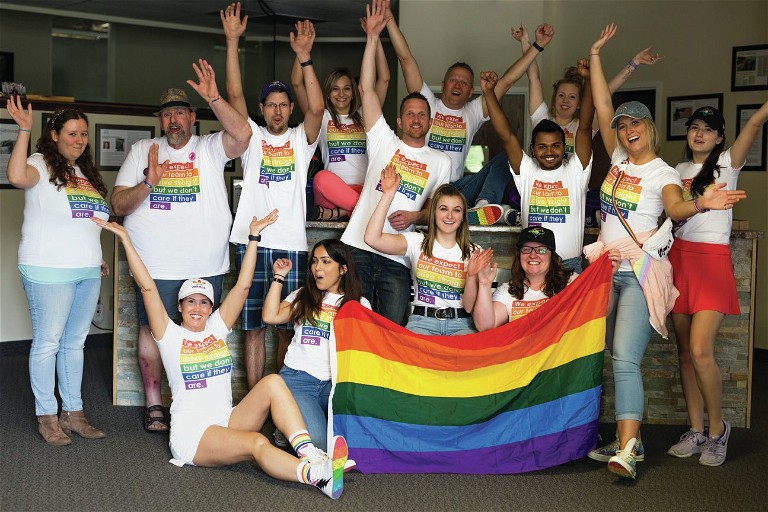
Driverseat employees and franchisees participating in the brand’s “Ride with Pride” campaign
The franchisee journey is rewarding, but not for the faint of heart. Building and running your own business can be tough and it helps when you have the right support to be your authentic self. This hasn’t always been the case for gay business owners in the past, but the Canadian marketplace is changing, and in the world of franchising, companies are committed to creating a more equitable path.
“Just like our larger society, in franchising there has been a shift towards openness and inclusiveness over the last few years,” says Sherry McNeil, president and CEO of the Canadian Franchise Association (CFA). “With that shift, comes greater representation and visibility of LGBTQ2SA+-owned businesses.”
The Canadian Gay and Lesbian Chamber of Commerce estimates there are more than 100,000 LGBTQ+-owned businesses across Canada today, including many franchises. And while the CFA does not collect statistics regarding the sexual orientation of its members, it sees growing opportunities for franchise owners of all backgrounds.
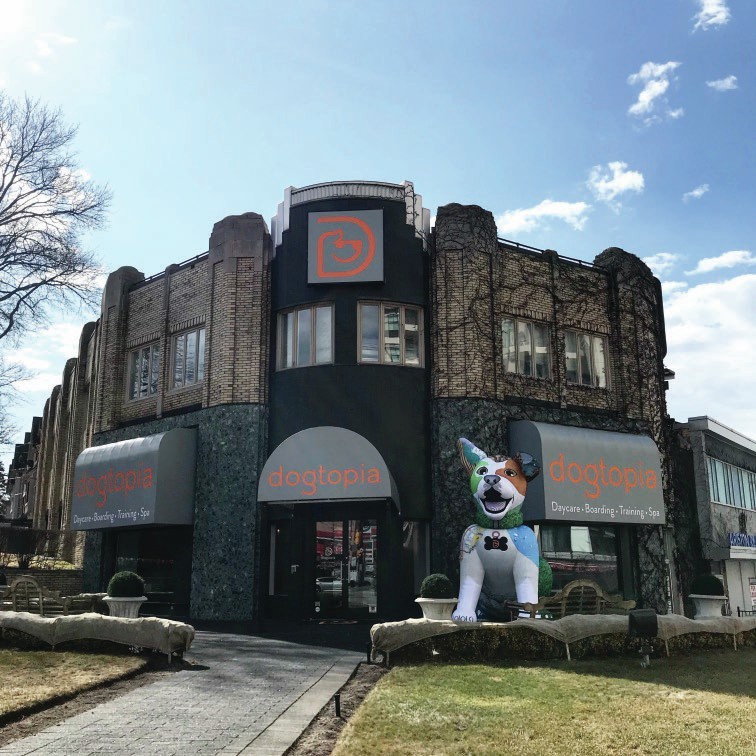
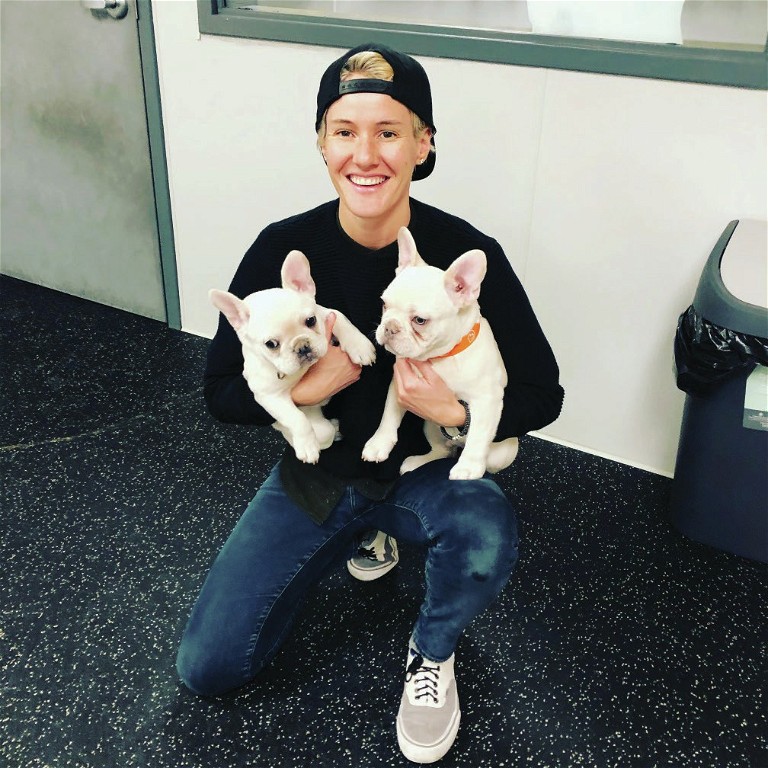
Jen McCain quit her corporate job to become the owner of multiple Dogtopia locations in the GTA including the one to the right
“Franchising is very diverse, and that representation is not only important to the larger conversations surrounding diversity and inclusivity, it’s also better for business,” says McNeil. “Data from the Canadian Gay and Lesbian Chamber of Commerce states that the annual buying power of LGBTQ2SA+-owned businesses is $90 billion.” $90 billion.” Overall, says McNeil: “Any franchise brand operating in Canada needs to embrace diversity and inclusion if they want to be successful.”
The message is clear: a franchise brand’s attitude to diversity and inclusion can ultimately impact its bottom line. This was not lost on Chick-fil-A, a Georgia-based chicken-sandwich chain, when it faced significant protests when opening its first Canadian store in Toronto in 2017, as well as similar protests south of the border. At issue was the company’s long-running history of donating to organizations with alleged anti-LGBTQ+ positions, most notably the Salvation Army, the Fellowship of Christian Athletes, and the Paul Anderson Youth Home.
The message did not fall on deaf ears. In 2019 – arguably, two years too late – the fast-food giant announced it would be halting donations to these and like-minded organizations. Instead, it said it would focus its financial support on initiatives related to enhancing youth education, reducing youth homelessness, and fighting hunger. The announcement was met with cautious optimism by LGBTQ+ groups, and the company has since successfully expanded its presence in Canada.
SHOWING THE WAY
Fortunately, more uplifting stories of franchising success can be found throughout Canada’s LGBTQ+ community, with franchisees and franchisors alike championing diversity, equity and inclusion (DEI), and with openly gay franchisees running successful franchise businesses that reflect this new openness.
Jen McCain is among those franchising leaders. In 2017, she quit her previous job as a management consultant at a global accounting firm to open a Dogtopia location in Toronto, a business offering doggie daycare services. Today, she is the proud owner of multiple Dogtopia locations, which she says support her passion for pet care and the community at large.
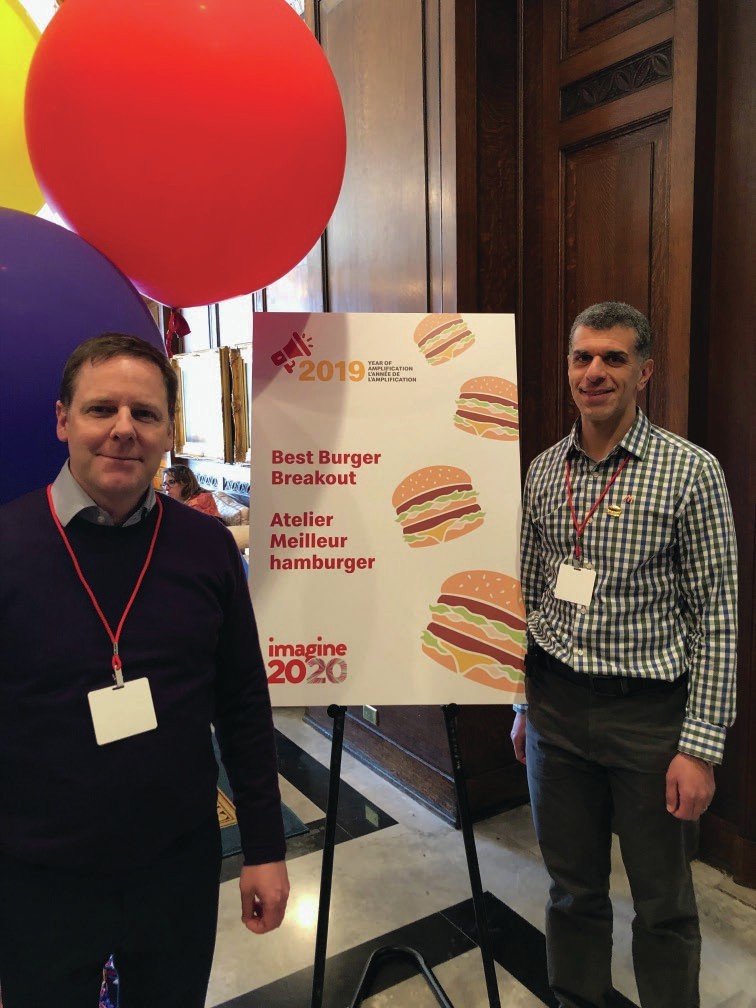
Pierre Marois and Pierre Jacoub, the husband-and-husband owners of five McDonald’s franchises in Nova Scotia
“I’m lucky that the franchise I’m part of is a reflection of the communities we serve,” she says. “There are many LGBTQ2SA+ families that have had pets as an alternative to a traditional nuclear family. There was a point in time when it was less socially acceptable [for gay couples] to have a traditional, heteronormative family and canine companions became a substitute.”
McCain says her journey to becoming a franchise owner was refreshingly free of the biases that LGBTQ+ business owners might have faced in the past. Partnering with Dogtopia has enabled her to champion DEI policies and initiatives throughout the organization – an enriching and empowering experience she says wouldn’t be possible if not for the LGBTQ+ trailblazers that came before her.
“I’m pretty bullish, and I’ve always been open about who I am,” says McCain. “To be able to speak freely as a franchise owner speaks to the incredible legacy of business owners and advocates that had to deal with those biases and prejudices [earlier]. Because they had those difficult conversations in the past, it means I don’t have to today.”
The experience has been similar for Pierre Marois and Pierre Jacoub, the husband-and-husband owners of five McDonald’s Canada franchises in Nova Scotia. Like McCain, Marois and Jacoub (aka “the two Pierres”) have seen a genuine commitment to inclusion and diversity at all levels from McDonald’s Canada, be it within the communications, employee resource groups, DEI training programs, diverse leadership or outward support for important cultural moments (e.g., Pride, National Indigenous History Month, Black History Month, etc.).
“McDonald’s Canada walks the walk, and that’s given us the support to do the same for our employees,” says Jacoub, noting he and Marois are proud to say they’ve made it their mission to create workplaces where employees from all backgrounds can feel safe and respected. “We’ve been approached many times by our employees because they realize that because we’re not a straight couple, we’re more open to hearing stories of challenges or lending an open ear for what they may be struggling with.”
This emphasis on inclusion and diversity is also built into Marois and Jacoub’s training and orientation process and is exemplified at every opportunity. It’s all part of the “two Pierres’” goal of ensuring their team feels as empowered as they do. “As in life, it’s important to be genuine and authentic to achieve your full potential at work,” says Marois. “I couldn’t do it any other way.”
SUPPORT FROM THE TOP
Becoming a franchise owner means joining an established community, one with its own set of rules, culture and leadership. This can be daunting for any potential franchisee owner who falls outside a conventional “norm” as a result of their background, gender or sexuality.
IT TAKES A COMMUNITY
The Canadian Franchise Association facilitates franchise support networks, member committees, and DEI initiatives, including its CFA Diversity and Inclusion Champion Award.
The CFA also finds opportunities to celebrate its diverse membership, either via interviews with LGBTQ+ franchise leaders on its Franchise Canada TV spotlight or other campaigns.“We highlight the diversity of franchisees in the editorial content of our consumer publication, Franchise Canada, and deliver education on diversity and inclusion in our conferences and educational offerings,” says Sherry McNeil, the CFA’s president and CEO.
The CFA isn’t alone in its willingness to help. In 2019, the International Franchise Association launched the Franchising Pride Council as a mentoring and support network for LGBTQ+ small business owners and employees.
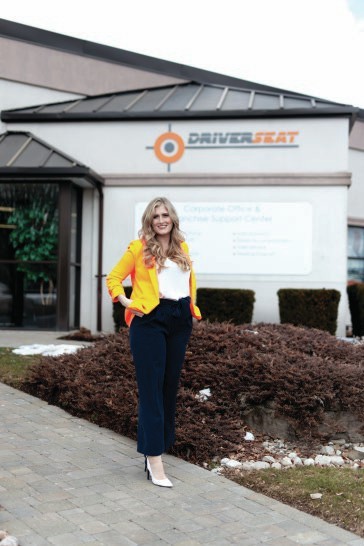
Driverseat’s Dani Bazely, a member of the LGBTQ+ community, plays a lead role in building an open work culture at the company
“When you’re a franchisee, your personal life and business life can become very intertwined. If you aren’t able to share some of the challenges you’re navigating with your franchise or corporate support team because you’re in an environment that doesn’t allow you to be 100 per cent authentic, that’s where struggles can come in,” says Dani Bazely, director of marketing at Driverseat and a member of the LGBTQ+ community.
Creating inclusive, safe and welcoming spaces for all franchises is something Bazely has fostered throughout her career. The challenge, she says, is that biases still exist, and there are businesses that have been male and straight-dominant for some time, which can make them difficult for anyone outside that demographic to navigate. Understanding this, Bazely plays a lead role at Driverseat in ensuring all franchisees have the equitable support and resources to succeed.
“The relationships between the franchisor and franchisee have to be very open and transparent, and they have to recognize the biases that exist in gender, race or sexuality,” Bazely advises. “That’s why it’s incredibly important for franchisors like ourselves to make diversity part of our core values and include it in our dialogue with franchise prospects in the very beginning. We want them to feel comfortable sharing their personal lives and to have an open conversation about any barriers they might perceive.”
In addition to promoting an open culture on the job, Driverseat Canada has celebrated Pride Month with their “Ride with Pride” campaign, which aims to help end stigmatism in the transportation sector overall.
Building an inclusive and diverse franchise starts at the top. This is a responsibility that Greg and David Gardner-Orbon are also taking to heart as they begin the process of expanding their Sugar Daddies Bakery business. “David and I got into this because we had both started following a sugar-free lifestyle and we wanted to share that with other people,” says Greg. “Right now, we’re a franchise of one, but we’re in the process of duplicating that first store across Ontario and Canada.”
Beyond sharing a healthier approach to baking, the pair also hopes to create a franchise experience built on the guiding principles of inclusion and diversity. Not only are these principles baked into the store’s policies and procedures, no pun intended, they are embedded in its approach to hiring. “Whenever we’re advertising for a new role, we make sure to call out the fact that we are an inclusive employer, specifically when it comes to LGBTQ2SA+, because we’re part of that community and want people in that community to feel comfortable coming in and applying for a job.”
The COVID-19 pandemic may have put the start-up’s franchising plans on hold, but now that conditions are clearing, Greg and David are looking forward to sharing their name with franchisees who understand the importance of providing welcoming spaces for all.
“It’s important for a business owner to recognize that acceptance translates into revenue,” says Greg. “There are a lot of times in our cafe where you’ll see samesex couples sitting down, having coffee together and holding hands. You don’t normally see that in other big-brand coffee places, and for our customers, I think it’s because they know it’s a safe space. That’s why, when we go looking for franchisees, it will be important to us that they buy into this philosophy and support it.”
It’s a view that’s increasingly shared by other franchise owners across Canada. They are part of a growing push to create a marketplace deeply attuned to diversity and inclusivity in all sectors. It’s good for morale, and it’s good for business. ■